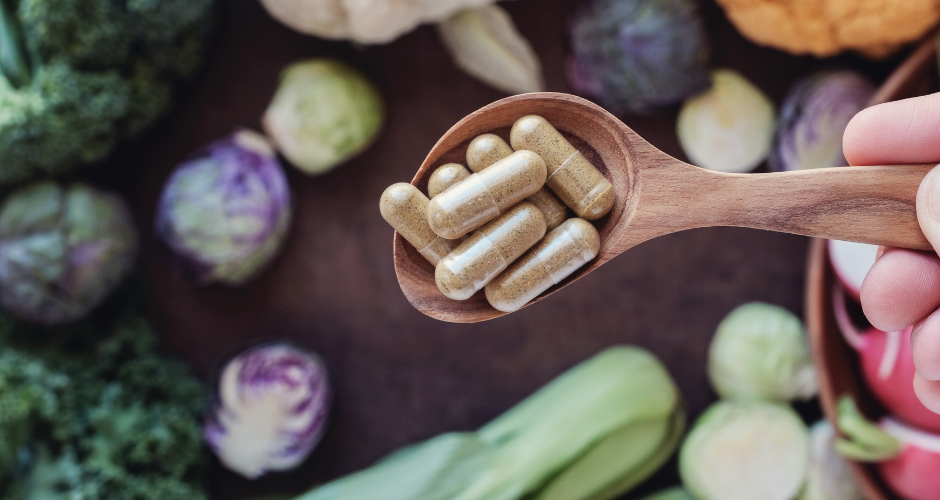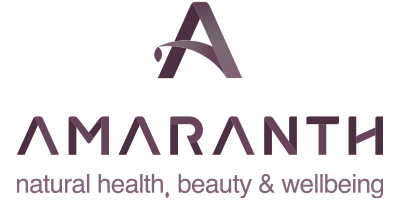What is Glutathione?

What is Glutathione?
Glutathione is a molecule made in the body from three amino acids: Cysteine, Glycine, and Glutamic Acid. It exists in two states - reduced Glutathione (GSH) which is the active form, and oxidised Glutathione (GSSG), the used form. GSH is one of the body’s most potent antioxidants, working to neutralize reactive oxygen species (ROS).
What are Reactive Oxygen Species (ROS) and how do they impact health and longevity?
ROS are unstable, oxygen-containing molecules that can damage cells. They are a natural byproduct of metabolism, but are also generated by environmental exposures such as pollution, radiation, sunlight, smoking, and medications. While ROS have some beneficial roles, excess levels can lead to oxidative stress, damaged cells, proteins and DNA.
Oxidative stress is implicated in:
- Chronic diseases such as cancer, and neurodegenerative conditions such as Alzheimer’s and Parkinson’s.
- Accelerated skin aging e.g. collagen degradation, wrinkle formation.
- DNA mutations, poor cellular regeneration, and systemic inflammation.
The skin can act as a visible sign of oxidative damage (think of the loss of elasticity and wrinkles on skin that has been exposed to excess sun or smoking). The same damage also occurs internally, affecting organs and tissues, and accelerating biological aging.
The role of Glutathione in healthy aging
Maintaining optimal levels of this master antioxidant may be key to slowing the aging process and reducing the risk of chronic disease. Researchers like Dr. Mark Hyman and Dr. David Perlmutter have emphasized its importance in aging and disease prevention, even coining the term “the Glutathione theory of aging.” According to this theory, a deficiency in Glutathione accelerates aging and weakens immune function, while optimal levels are linked to enhanced cellular protection and greater longevity.
Some specific functions of Glutathione
So, let’s delve deeper into the specific functions of this essential molecule.
Antioxidant Defence. As mentioned, Glutathione neutralizes free radicals and reduces oxidative stress, a cornerstone of healthy aging and disease prevention.
Detoxification. Glutathione supports liver function by binding to and facilitating the removal of toxins, heavy metals, and waste products.
Immune System Support. Glutathione enhances immune cell function, particularly natural killer (NK) and T cells.
Cellular Repair. It has a key role in DNA and protein repair. Low levels are associated with increased cellular damage.
Recycling Other Antioxidants. Glutathione supports the regeneration of Vitamins C and E, thus supporting our entire antioxidant network.
Energy Production. Glutathione offers protection to our mitochondria, the energy producers of our cells.
We can see from the above how Glutathione can influence many health and disease states, including immune health, cardiovascular function, brain health, inflammation, energy levels, neurological conditions and pain. Studies have also shown that it can positively impact sports performance by reducing lactic acid, and improving recovery and endurance.
So far so good! Hopefully you now wish to know more about how you can optimise your natural Glutathione production. Let’s first look at what might lead to lower levels, and then explore how you can boost this through food and, if necessary, supplementation.
Causes of Glutathione Deficiency
Several factors can deplete Glutathione levels. These include:
Poor diet and nutrient intake. Deficiencies in protein and sulphur-containing foods (garlic, onions, cruciferous vegetables) can lead to lower levels.
Aging. The enzymes that synthesize and recycle Glutathione naturally reduce with age.
Toxin exposure. Smoking, pollution, exposure to chemicals and mold etc. can increase our demand for Glutathione.
Chronic stress and illness. When faced with persistent inflammation, immune dysregulation, or emotional stress, the demand for Glutathione can exceed synthesis capacity.
Over-exercising. Intense or prolonged activity may temporarily lower levels.
How to Boost Glutathione Levels
Dietary Support
Food can provide the precursors needed for Glutathione synthesis, namely the amnio acids Cysteine, Glycine, and Glutamic Acid. We also require the co-factors Selenium, Vitamin C and B vitamins to support this process. All of these nutrients can be found in a wholefood, protein-rich diet. Specifically:
Complete protein. Especially from eggs, meat, poultry and fish, as well as plant-based sources such as quinoa.
Sulphur-rich foods. Garlic, leeks, onions, cruciferous vegetables. Cysteine tends to be the rate-limiting amino acid in Glutathione production (meaning that this is the one that there usually isn’t enough of), an abundance of these sulphur foods will provide this.
Micronutrients. Selenium, Vitamin C, B vitamins (especially B6, B9, and B12) found in wholegrains, animal products, fruits and vegetables, and nuts and seeds.
Glutathione Supplements
Supplements can support or directly increase Glutathione production, but quality and bioavailability are key:
Glutathione powders/capsules - Evidence suggests that in this most basic form, Glutathione has low bioavailability due to degradation in the digestive tract. I generally don’t recommend this form.
Liposomal Glutathione - Encapsulating glutathione in fat (liposomes), improves absorption and delivery directly to our cells. Some studies show significant increases in blood Glutathione levels and antioxidant activity when using this form.
N-Acetyl-Cysteine (NAC) - NAC is a precursor to Cysteine, the rate-limiting building block in Glutathione synthesis. NAC supplementation can effectively raise GSH levels and support detoxification and immune health.
GlyNAC (Glycine + NAC) - A study in aging mice showed 24% longer lifespan with GlyNAC supplementation via improved Glutathione production, enhanced mitochondrial function and reduced DNA damage.
Does Glutathione Increase Longevity?
The evidence strongly suggests that maintaining high Glutathione levels is associated with improved health and potentially longer lifespan. While direct longevity effects in humans remain under study, the benefits for inflammation, oxidative stress, detoxification, and cellular protection make it a key component of healthy aging strategies.
To summarise:
- Dietary support is essential for both production and activation of Glutathione.
- Lifestyle changes that reduce oxidative stress (e.g. avoiding smoking, excess sun, pollution) can help to preserve Glutathione levels.
- Supplementation may offer additional benefits, especially with NAC, GlyNAC, or high-quality liposomal Glutathione.
More human studies are needed, but supporting Glutathione through diet and targeted supplementation appears to be a promising approach for long-term wellbeing and longevity.
